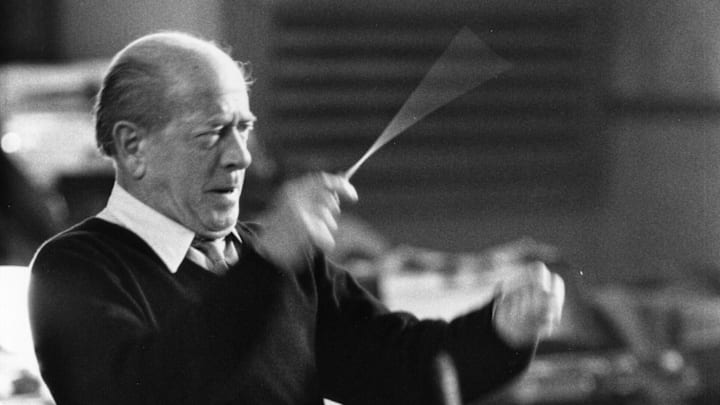Born Jenő Blau, Eugene Ormandy (1899–1985) was a Hungarian-American conductor and violinist, best known for his long and successful tenure as the music director of the Philadelphia Orchestra. He once stated: “The Philadelphia sound – it’s me.” However, rather than being a cringe-inducing boast, this was practically a statement of fact. So, how did he get his start as an extraordinary figure in the history of music?
The precocious Ormandy demonstrated an early gift for violin, using his prodigious musical talent to study violin at the Royal National Hungarian Academy of Music (now known as the Franz Liszt Academy of Music) at the age of 5! However, some would say his true passion lay in conducting, and he began to gain recognition in the 1930s. He was no doubt one of the best in that profession.
The Eugene Ormandy origin story continues
In 1936, he became the conductor of the Minneapolis Symphony Orchestra (now known as the Minnesota Orchestra), a position he held until 1938. His most significant and enduring association, however, was with the Philadelphia Orchestra. He held the post for an astonishing 42 years (1938–1980), and gained a reputation as a phenomenal conductor. Ormandy joined the orchestra as associate conductor in 1936, being co-conductor with Leopold Stokowski, and took over as the principal conductor in 1938.
Under his leadership, the Philadelphia Orchestra became one of the finest and most recorded orchestras in the world. He was present at the American premieres of such important works as Mahler’s Symphony No. 8 (“Symphony of a Thousand”), Stravinsky’s The Rite of Spring, and Franz Schubert's Symphony No. 9. Eugene Ormandy was known for his technical precision, clarity, and ability to bring out the best in orchestral musicians. He conducted a vast repertoire, spanning from classical to contemporary works. Ormandy also championed the works of American composers, including Samuel Barber, whose "Adagio for Strings" he premiered with the Philadelphia Orchestra in 1942.
Private person, public success
A private person, Ormandy once said: "I don't believe that a performing artists' [sic] biography should be written by himself or anyone else." Still, as a public figure, he played a substantial role in helping the Philadelphia Orchestra join the "Big Five" American orchestras in public perception. Rachmaninoff even said it was "the greatest orchestra in the world."
Eugene Ormandy passed away on March 12, 1985, in Philadelphia, leaving behind a remarkable impact on the world of classical music. In addition to his music career, it seems Ormandy might have had a backup option; he also had a degree in philosophy. In terms of album sales and mainstream awards, he was no slouch, either. He had three gold records and two Grammy Awards His legacy continues through the recordings he made with the Philadelphia Orchestra, which remain highly regarded.
